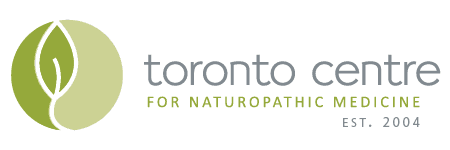Eczema (atopic dermatitis) is well-treated using naturopathic medicine.
Eczema is a chronic, itching skin eruption.
The exact cause of eczema is unknown, but it seems to be related to immune system malfunction. Eczema is often associated with asthma and hay fever. It usually first appears between the ages of five and seven and may flare up and remit many times over the course of your lifetime.
Seek professional healthcare if self-care measures are ineffective, if your eczema is widespread or if your skin becomes infected.
Symptoms of Eczema
Possible symptoms of eczema include:
- Itchy skin
- Thickened, cracked or scaly skin
- Reddish to brownish-gray patches of skin
Treatment of Eczema at Toronto Centre for Naturopathic Medicine
At Toronto Centre for Naturopathic Medicine, the goals of eczema treatment are significant or complete reduction of itch, healing of damaged skin and management of associated health conditions (e.g., asthma, hay fever).
Conventional treatment for eczema includes variety of medications, including topical or oral corticosteroids and immunomodulators. These treatments may have short- or long-term side effects.
For this reason, you may choose to try natural treatment to possibly avoid use of conventional medications, or together with conventional medications in order to decrease dosages of conventional medications required to manage your eczema symptoms.
Naturopathic treatment of any chronic health concern must be recognized as a process that involves:
- Identifying specific treatment goals
- Development by your naturopathic doctor, of a thorough understanding of all factors affecting your health, including physical, psychological, emotional and lifestyle factors
- Development of a comprehensive treatment plan
- Implementation and maintenance of that plan through periodic monitoring and adjustment
At Toronto Centre for Naturopathic Medicine, a typical approach to treating eczema may be to:
- Identify and address underlying factors in your lifestyle (e.g., use of aggressive skin cleansers, environmental factors) that may be contributing to your eczema symptoms
- Identify and eliminate dietary triggers of “breakouts” using a supervised food elimination and challenge protocol or laboratory testing
- Address immune system factors by “balancing” immune system activity using botanical (herbal) medicines or nutritional supplements
- Soothe and heal the skin using botanical (herbal) medicines
Where appropriate, a number of therapeutic options are available, to be used alone, or more often in a complementary fashion, including:
- Nutritional counseling
- Nutritional supplements
- Metabolic detoxification protocols
- Botanical (herbal) medicines
- Acupuncture
- Homeopathy
- Bowen Therapy
- Suikodo™
- Hydrotherapy
- Exercise prescription
- Relaxation (meditation) training
- Lifestyle medicine and counseling
Treatments provided by naturopathic doctors are covered by most extended healthcare plans.
References
Eczema [Internet]. Mayo Foundation for Medical Education and Research; [cited 18 Feb 2009]. Available at: http://www.mayoclinic.com/health/eczema/DS00986.

